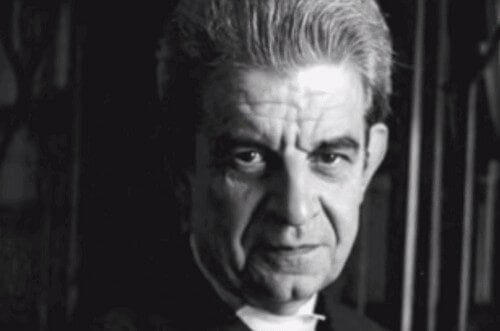Discover the biography of Jacques Marie Emile Lacan, an important figure in Parisian intellectual life for much of the 20th century, whose name is often linked to psychoanalysis.
His teachings and texts explore the importance of Freud’s discovery of the unconscious, both in the theory and practice of analysis itself, and in relation to a wide range of diverse disciplines.
- Especially for those interested in the philosophical dimensions of Freudian thought.
- Lacan’s work is priceless.
- In the last century.
- Lacanian ideas have been placed at the center of various psychoanalytic themes in philosophical circles.
Jacques Lacan was born on April 13, 1901, the first child of a prosperous and bourgeois couple, his parents were Alfred Lacan and Emilie Baudry, a family of strong Catholic tradition.
In 1907, Lacan entered select Stanislas College, a Marist school in the service of the Parisian bourgeoisie.
There he received a solid primary and secondary education with a strong focus on religious and traditionalists, completed his studies in 1919, when he was already developing his philosophical thinking.
Although Lacan’s early texts appeared in the late 1920s, his editorial activity took off in the following decade, from 1930 several of the first Lacanian monuments occurred:
The 1930s was a crucial period for Lacan’s development, his youth being marked by a clash of interests and influences related to psychoanalysis, psychiatry, philosophy, art and literature, among others.
This period marked the beginning of Lacan’s solid interdisciplinary combination: Freudian analysis, Hegelian dialectic and Kojevian pedagogy. To these three areas, he added the different experiences of the?Madness? From countless perspectives.
The 1940s were pivotal in Lacan’s career, a time when he became a great analytical thinker, a period in which there was a veritable explosion of Lacanian material, including seven annual seminars and many of his most famous essays.
In the post-war period, Lacan began and learned the structuralism of Ferdinand de Saussure and his heirs, such as Claude Lévi-Strauss and Roman Jakobson.
“When we face something impossible, there is only one way: to do it. The impossible has to be done, isn’t it to be promised?-Jacques Lacan-
Lévi-Strauss’s 1949 book, The Elementary Structures of Kinship, is known to have contributed to the launch of the French structuralist movement, which flourished during the 1950s and 1960s with an orientation that challenged the theoretical primacy of existentialism in France.
This change in French social theory led to a fundamental reorientation of Lacan’s thinking. Despite a shift in focus, Lacan remained true to Freudian structuralist psychoanalysis.
“The unconscious is structured as a language. ” -Jacques Lacan-
Lacan presents himself as the sole advocate of Freudian orthodoxy; he strongly argued that retrieving the primary meaning of language for analysis is the key to faithfully bringing Freud’s revolutionary approach to psychic subjectivity.
All this was announced in detail in the vast founding manifesto of fzotes: function and field of speech and language in psychoanalysis.
In 1980, towards the end of his life, Lacan considered it appropriate to dissolve his school, the Freudian School. The decision was controversial and caused internal conflicts between its supporters.
However, Lacan did not participate in these discussions, as he died in 1981. Su son-in-law and editor of the seminary, Jacques-Alain Miller, founded the Freudian School of cause as a successor to the Freudian School after its dissolution.
The three-record theory forms the framework for several concepts along Lacan’s intellectual path. The three records correspond to the imaginary, the symbolic and the real.
However, these concepts did not remain static throughout his life. His characterizations of each of the three records, as well as the relationships between them, have undergone multiple revisions and changes over the many years of his work.
Jacques Lacan left us the idea that “the unconscious is each other’s discourse. “Understanding the? Other? Like everything that is absolutely strange and beyond oneself. The other is the environment in which we were born, what should we translate?To survive and thrive.
In our lives, we gradually gain awareness and understanding of a number of signifiers, which are signs or codes that represent concepts and ideas.
These signifiers can only reach us from the outside world beyond me, so they must necessarily have been formed from language or “speech,” in Lacan’s words, from the “other. “
“The unconscious is exactly the assumption that people do not dream when they sleep” – Jacques Lacan-
The ideas and emotions that we have, according to Lacan, can only be expressed through language, in this way, the only language that we can use is the language of the other.
Our unconscious generates sensations and images built from each other’s language. Hence Lacan’s statement: “the unconscious is the discourse of the other. “
Lacanian postulates have greatly influenced psychoanalytic practice. In addition, they have allowed us to come to a more objective and open interpretation of the unconscious.

